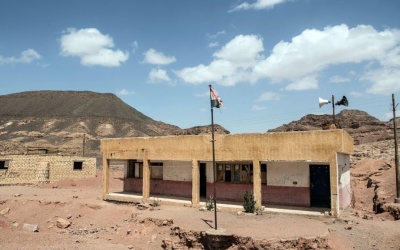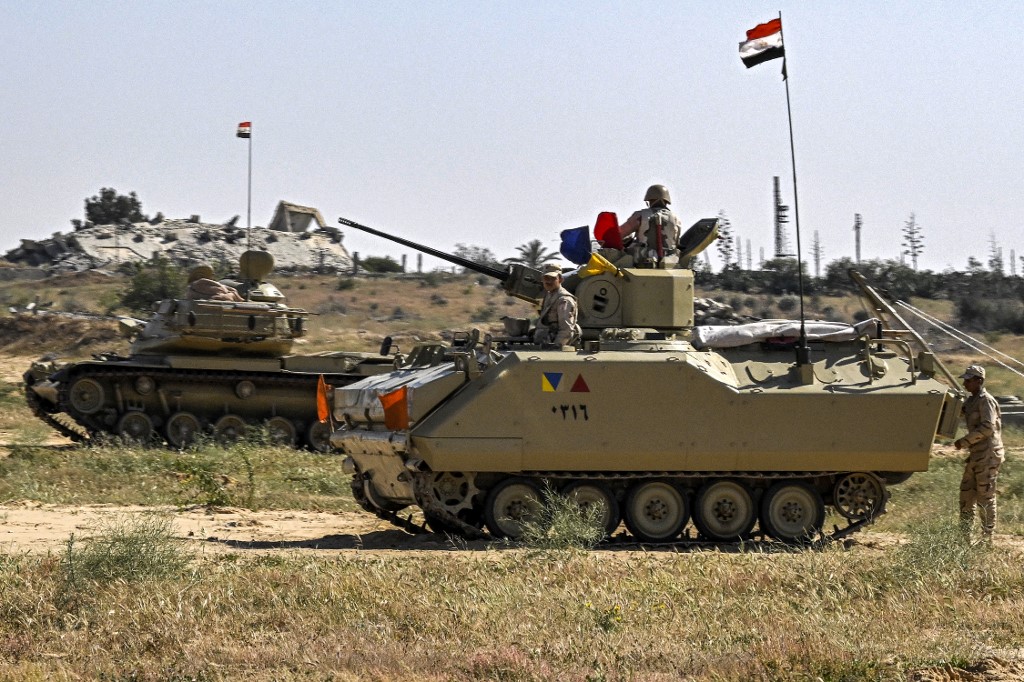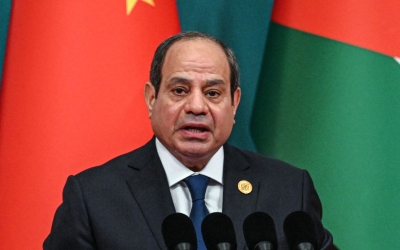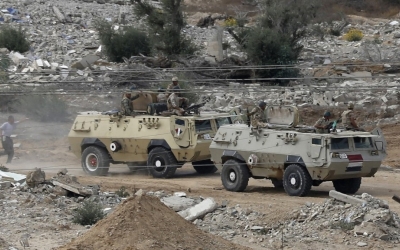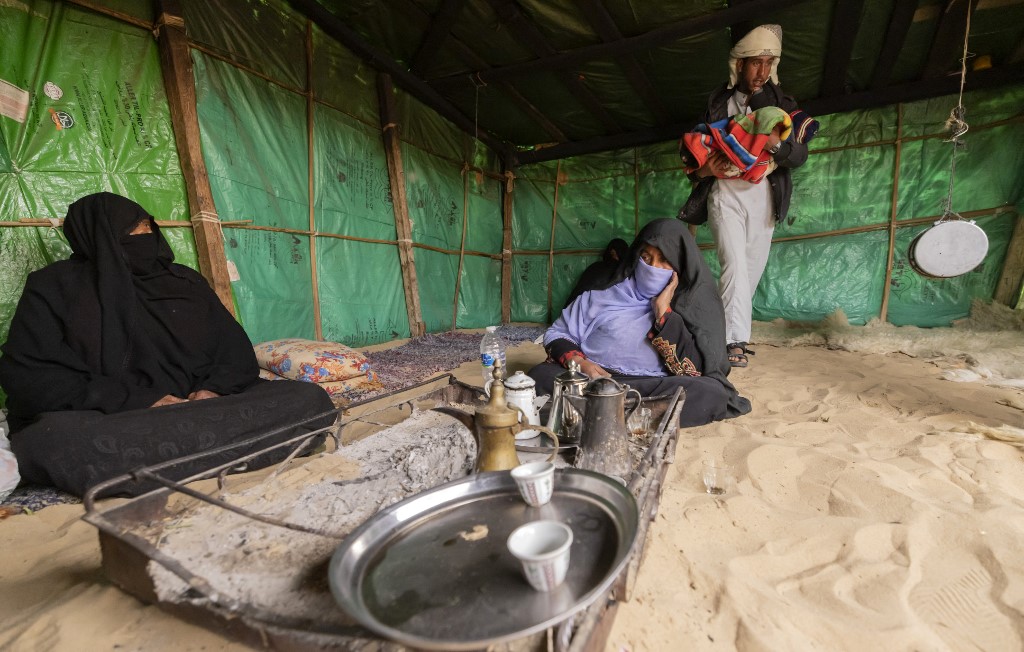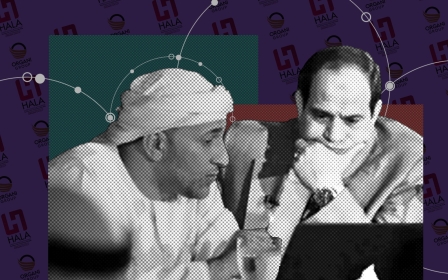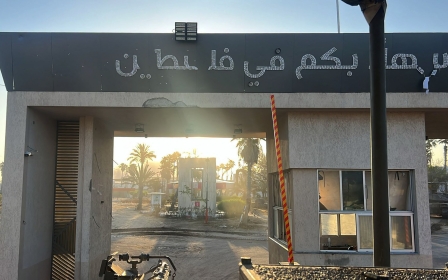Killed, disappeared, displaced: Egypt's Sinai devastated by Sisi's 10 years as president
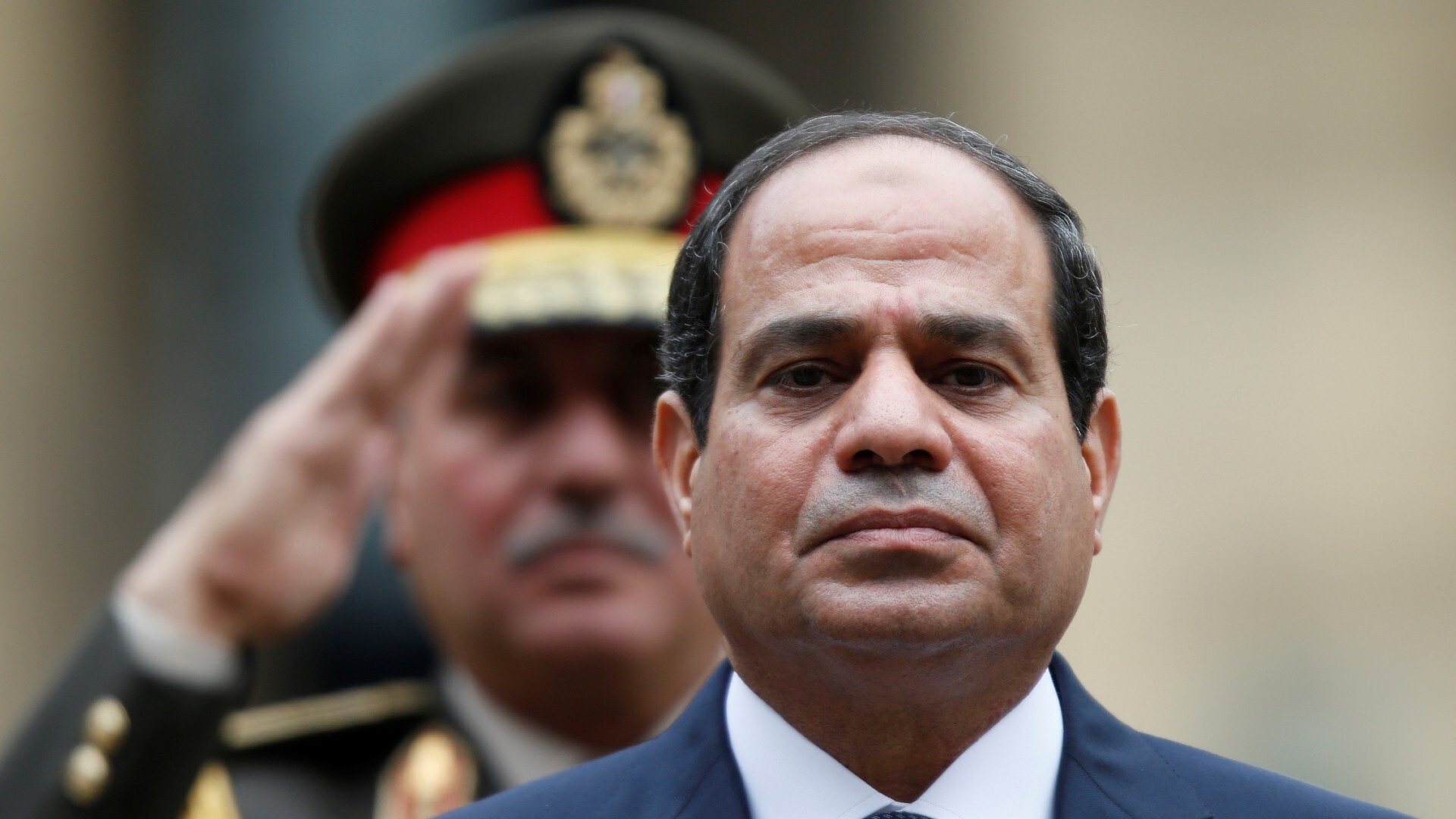
In January last year, the 12th anniversary of Egypt's 25 January revolution, President Abdel Fattah el-Sisi declared the war-torn Sinai Peninsula free of terrorism “due to the sacrifices of the police and the military.”
The war in Sinai is a battle that the Egyptian general-turned-president has spearheaded since the start of his rule in June 2014.
The military campaign has killed hundreds of civilians, displaced thousands and resulted in the arbitrary detention of many residents who protested against the indiscriminate nature of the war. It has also drastically altered the landscape of the peninsula, with entire villages wiped out and the city of Rafah almost completely razed to the ground.
Basil, one of the survivors of this war, was 12 years old when Sisi's rule started.
On a scorching July day in 2014, he woke up to screams in his house after strangers discovered and brought back the body of his cousin who was detained by counterterrorism forces five days earlier from his work in Arish, North Sinai.
New MEE newsletter: Jerusalem Dispatch
Sign up to get the latest insights and analysis on Israel-Palestine, alongside Turkey Unpacked and other MEE newsletters
"I saw the body of my cousin covered in dried blood, stacked in a big black plastic bag, with blue bruises and cuts all over his back," he told Middle East Eye.
"He was never an extremist, nor ever shot a gun. I still have nightmares about this moment, but our family moved on because there is no chance to get justice in this country," Basil, now 22 years old, said.
Rise of militant groups
Over the past decade, due to lack of protection from the military, the Sinai peninsula has witnessed the worst violence against civilians by extremist militants in the country's history, including an Islamic State attack on Al-Rawda mosque that killed more than 300 worshippers in 2017, and the terrorisation of the region's Coptic Christian population.
In the early 2000s, the Sinai-based militant group al-Tawhid Wal Jihad formed a spiritual alliance with al-Qaeda, carrying out several deadly attacks on tourism resorts among other targets.
The state responded with a crackdown on militants who, in the chaos following the 2011 uprising, found an appropriate moment to avenge years of ill-treatment at the hands of the police and the army.
At that time, another militant group, Ansar Bayt al-Maqdis, which had its roots in al-Tawhid Wal Jihad, became active, targeting gas pipes in Sinai running to Israel and Jordan.
After Sisi overthrew president Mohamed Morsi in July 2013, and the Rabaa Square massacre of protesters in Cairo the following month, Ansar Bayt al-Maqdis ratcheted up its violence in Sinai with nearly weekly attacks, accusing the army of displacing civilians and launching air strikes on homes.
In 2014, disputes within Ansar Bayt al-Maqdis resulted in a majority of the group pledging allegiance to the Islamic State group (IS), and renaming itself as Sinai Province, claiming to be an IS branch.
Sinai Province fought the Egyptian state and pro-government militias for years, leading to the killings of thousands in large-scale military campaigns that usually took place as a reaction to militant attacks.
In a 2022 speech, Sisi said that 3,227 security personnel had been killed in action fighting different militant groups, with more than 12,000 wounded. He did not specify civilian or militant casualties. However, in its press statements, the Egyptian army claimed it had killed thousands of militants in its operations.
A security source operating in Sinai told Middle East Eye that Sinai is now safe for civilians and military personnel alike.
"The stage of war has succeeded in eradicating the cancer of terrorism. Only last year the prime minister could visit North Sinai [governorate] after it was secured. Now a new phase has started to develop and rebuild the city."
Indiscriminate war
Basil recalled that during Sisi's war on terror in Sinai, there was a great disparity between the quality of life for his region's children compared with the rest of the country.
"While the rest of the country was living in peace, we, the kids of Sinai, lived every day under curfew, gun shots, sounds of air strikes and mortar attacks," he said.
"We witnessed kidnappings and beheadings of people we knew, Israeli drone attacks in the east, militants roaming the streets and staging checkpoints, and above all a government that treated you like a second-class citizen."
Amer, 23, who is now in his last year of study at Arish University, said that Sisi's war on terror has largely been indiscriminate.
"The government tried to fight terrorism, which they created, and in the process put all the citizens of Sinai in the same basket as suspects," Amer said.
"And as a suspect, the lowest ranking conscript can shoot you in the head midday in front of everyone and will not even get questioned."
While Basil's family considered themselves "lucky” to know the destiny of their relative and could confirm his death, hundreds of families in Sinai are still in limbo regarding the fate of their loved ones.
Um Hamdan, 56, is a a figs and olives farmer in Sheik Zuweid. Her husband was detained on suspicion of aiding and hiding militants in nearby farms in July 2016, when the military retaliated against a suicide bomb attack in the city and the killing of 23 military personnel by militants during their siege of a police station.
The Bedouin woman said that her husband has been forcibly disappeared since his detention.
Um Hamdan and her two sons have gone to morgues, police stations, military camps and prisons in search for the father. "It's unbearable and unjust. For eight years, we haven't enjoyed a moment of peace or comfort, knowing he might be in prison, or worse be dead and buried somewhere in the desert," she told MEE.
In January 2017, police published a staged video showing soldiers raiding a house in Arish, resulting in a shoot-out with members of the Sinai Province, allegedly resulting in the death of 14 men.
The incident caused an uproar in Sinai, as several testimonies surfaced confirming that most of the dead bodies were of suspects who had been detained and disappeared. At the time, Human Rights Watch published an investigation report that suggested "police arrested at least some of the men months before the alleged gunfight at a house in North Sinai and that the raid itself was staged".
Since then, families of detained suspects follow official statements with the hope of knowing the whereabouts or destiny of their relatives.
"All I'm asking is that they give me his body if he is dead. I forgive them. I just want to bury him and grieve," Um Hamdan said.
She said she and her sons keep an eye on any statements from either the police or the military to see whether his name is on the lists of people who have been killed in a shootout with the police.
Mass displacement
In the pursuit of a military-oriented campaign to hunt down militants, thousands of Sinai villagers in Rafah and Sheikh Zuweid were also forcibly displaced after 2013 due to the Egyptian military's policy of demolishing homes in the province in the name of counter-terrorism.
These two cities became war zones, with several militants seeking refuge in scattered farms and underdeveloped land.
Human Rights Watch estimates that more than 100,000 of North Sinai's 450,000 residents have been displaced or have left the region since 2013.
Ahmed, 27, is among those whose houses and farms were demolished. He stated that, to this day, his family has not been compensated for the land seized by the government. They received only minor compensation for the house in Rafah, an amount that has lost 40 percent of its value since the Egyptian pound was floated in November 2016, he said.
"I took my family and left for Ismailia [bordering the Suez Canal] to live there as strangers, after my great-grandparents had been living in Rafah for decades. Being away from the house you grew up in is painful," he said.
Ahmed acknowledges that the military and security campaigns have succeeded in regaining control and significantly limiting the militants' activities. "But at what price?" he asked. "Now that the militants are no longer a threat, why are they selling land in Rafah to investors? Why can’t we return to our land that families fought for and resisted the Israelis for?"
Ahmed mentioned that upon leaving Rafah, he did something that his family and other Palestinians in Rafah used to do, taking the house keys as a symbol of hope to return, and wrote "We will return, Rafah".
Siege of Arish
Hisham, a banker from Arish, is among the thousands of Sinai residents who experienced what locals now refer to as the "2018 siege".
In February 2018, the Egyptian army's operation against IS resulted in a blockade of Arish, Sinai's largest city, preventing food, medicine and gas from reaching its roughly 180,000 inhabitants.
During the siege, Hisham, his wife and two children moved in with his parents in search of food, as supplies had run out and securing them was impossible.
Hisham eventually decided to leave Sinai for Alexandria. However, it wasn't the military campaign alone that prompted his departure.
In April 2019, while Hisham was walking with his children, a suicide bomber attacked a market in Sheikh Zuweid, killing eight people (five policemen and three civilians). "My child saw a mutilated body, lost hearing in one ear, and spent almost three months not speaking," he told MEE over the phone.
"What struck me was how few people in Egypt know what happens in Sinai, and I had to change my address on my national ID to avoid hearing the phrase 'ah, you're from North Sinai, you must be a terrorist'," he said.
Anti-Christian violence
Other families have fled Sinai seeking healing from a bloody incident.
In April 2017, Mourad and his family were among hundreds of Coptic Christians who fled Arish after IS militants shot five members of their faith dead and burned another two alive.
At the time, the Egyptian government assisted the Christian population in fleeing, but did not address the issue publicly.
'Sinai has left an open wound in my soul that I cannot overcome'
- Mourad, Coptic Christian from Sinai
That year was particularly devastating for Egypt's Coptic Christians. On Palm Sunday, twin suicide bombings struck St George's Church in Tanta and Saint Mark's Coptic Orthodox Cathedral in Alexandria, resulting in the deaths of at least 45 people and injuring more than 100.
In May 2017, masked gunmen ambushed a bus carrying Coptic pilgrims to a remote desert monastery, killing 28.
Mourad and seven family members hired a bus and headed to Ismailia before settling in Cairo. "No one can understand the feeling of leaving your hometown because the government cannot protect you, and you fear being beheaded or burned alive because of your religion," Mourad said.
"When I recall those days, I experience panic attacks. Sinai has left an open wound in my soul that I cannot overcome.
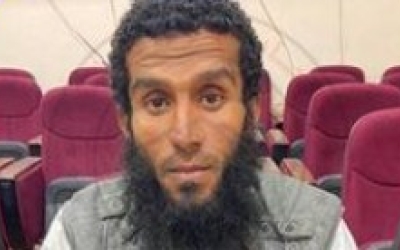
"The government urged people to remain silent and avoid protests to prevent a situation like Syria or Iraq, but look at us. We were expelled from our homes, and the state failed to protect us."
While Hisham and Mourad managed to flee Sinai, thousands remain, grappling with both state repression and militant insurgency.
Maghnam, a member of the Dawaghra tribe known for its close ties with security forces in North Sinai, lost two friends in April 2021. They were kidnapped and executed by IS fighters, accused of collaborating with the military.
Mohamed Ibrahim Hamdan, 23, and Swilam Ahmed Swilam, 44, were killed in a manner typical of IS executions, their deaths documented and used for propaganda.
Maghnam believes that many like them were caught between working with militants and facing death by the military, or collaborating with the army and risking execution on video.
Facing a grim future in Sinai, young men are left with few options. For Basil, the 22-year-old from Arish, leaving the country is the only viable solution. He is preparing to migrate to Europe via smuggling boats in Libya.
"Living in exile will offer more dignity than staying in Sinai. While Sinai holds a special place in my heart, I cannot bear for my children to witness the horrors I experienced as a child."
Middle East Eye delivers independent and unrivalled coverage and analysis of the Middle East, North Africa and beyond. To learn more about republishing this content and the associated fees, please fill out this form. More about MEE can be found here.


